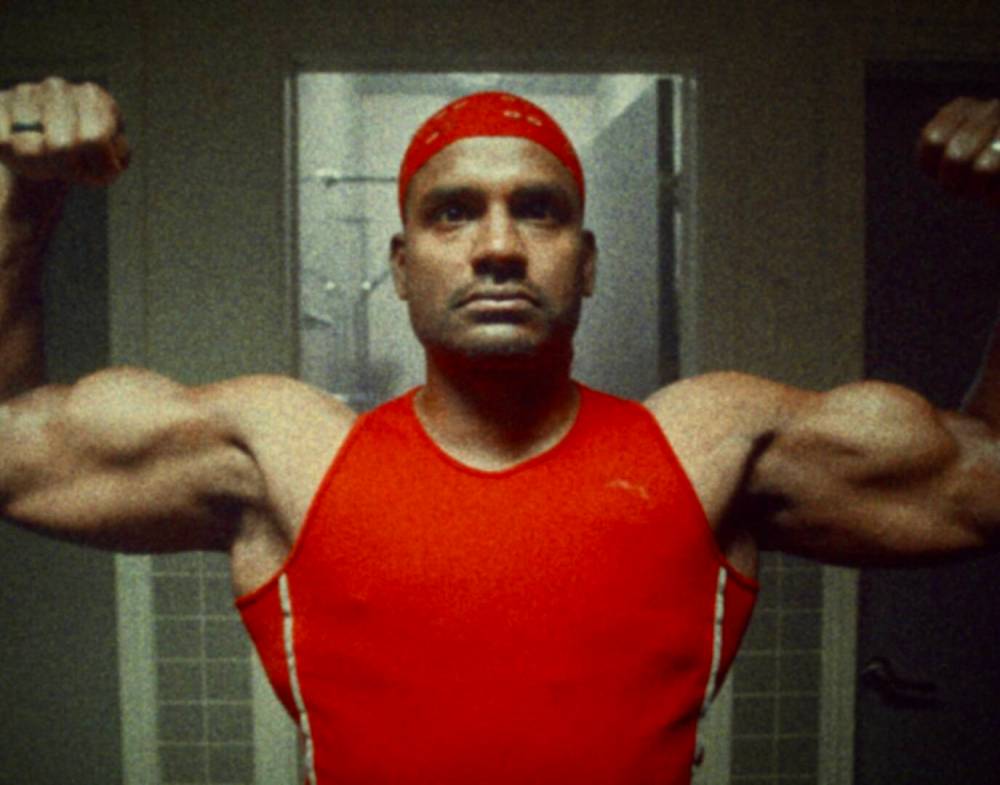Manitoba credits roll at TIFF Guy Maddin’s latest among seven locally powered films at Toronto fest
Read this article for free:
or
Already have an account? Log in here »
To continue reading, please subscribe:
Monthly Digital Subscription
$0 for the first 4 weeks*
- Enjoy unlimited reading on winnipegfreepress.com
- Read the E-Edition, our digital replica newspaper
- Access News Break, our award-winning app
- Play interactive puzzles
*No charge for 4 weeks then price increases to the regular rate of $19.00 plus GST every four weeks. Offer available to new and qualified returning subscribers only. Cancel any time.
Monthly Digital Subscription
$4.75/week*
- Enjoy unlimited reading on winnipegfreepress.com
- Read the E-Edition, our digital replica newspaper
- Access News Break, our award-winning app
- Play interactive puzzles
*Billed as $19 plus GST every four weeks. Cancel any time.
To continue reading, please subscribe:
Add Free Press access to your Brandon Sun subscription for only an additional
$1 for the first 4 weeks*
*Your next subscription payment will increase by $1.00 and you will be charged $16.99 plus GST for four weeks. After four weeks, your payment will increase to $23.99 plus GST every four weeks.
Read unlimited articles for free today:
or
Already have an account? Log in here »
Hey there, time traveller!
This article was published 05/09/2024 (455 days ago), so information in it may no longer be current.
In early August, Manitoba Film & Music announced a record-breaking year when it came to the number of film and television productions happening in Manitoba: an astonishing $434.9 million, double the amount of last year, which endured the affliction of both writers’ and actors’ strikes.
Fiscally, it was great news, with the TV- and movie-business dollars trickling through the province’s economy via everything from hotel rooms and rental cars to prop rentals.
Street sense
A Winnipeg connection is not always evident in some of the films playing at TIFF this year.
A Winnipeg connection is not always evident in some of the films playing at TIFF this year.
Case in point: the feature drama Sharp Corner stars Ben Foster (Hell or High Water) as a man who obsesses over the street in front of his house, a seeming magnet for road accidents, much to the growing consternation of his wife (Cobie Smulders of How I Met Your Mother). The film was shot in Nova Scotia by that province’s homeboy Jason Buxton (Blackbird).
The local connection? It was adapted from a short story by Russell Wangersky, opinion editor of the Free Press.
Wangersky is flying to the festival for the film’s première tonight and will return home by Sunday. (He has to report to work next week.)
He comes to the film with East Coast credentials. He was raised in Halifax and attended Acadia University. And while pursuing a career in journalism, he found time to write books, such as his 2004 collection The Hour of Bad Decisions, which was longlisted for the Giller Prize.
The story that formed the basis for the film was published in another Giller nominee, Whirl Away, published in 2012.
“Jason Buxton read the stories and optioned several of them,” Wangersky says in a phone interview. “He was thinking that he would put together a screenplay that was based on three different stories that all had a collision point (but he) whittled it down to one.
“So it’s been 12 years to make this movie.”
Wangersky, who moved to Winnipeg in June 2023 (long enough for us to claim him as one of our own), says he was not asked to write the screenplay, a task Buxton took on himself, but he was consulted on “some technical stuff” related to accidents and fires, things Wangersky experienced as a volunteer firefighter, an eight-year experience that inspired his 2008 book, Burning Down the House.
“He wanted to know a little bit about what could happen in an accident, things like that.”
Wangersky says he was also consulted on locations before they decided to scrap the idea of using an existing house, as it was too difficult to pull off.
“In the end they ended up building one,” says Wangersky.
“It was a purpose-designed house for shooting. It had the advantage that all of its interior walls were on rollers, so they could take a wall from one side of the house entirely out of this shot.”
Wangersky anticipates the TIFF première will be a benchmark in his 12-year relationship with Buxton.
“Actually, I’ve never met him,” he says. “It’s very exciting. We’re going to get to meet in Toronto, WestJet willing.”
— Randall King
Of course, that doesn’t necessarily shake out to be a good thing for our own Manitoba filmmakers. In fact, it might serve to sharpen the divide between local artists and the moneyed Hollywood studio types bringing mainstream movies — such as Nobody 2, a sequel to the Bob Odenkirk Netflix hit, and The Long Walk, an adaptation of the Stephen King novella of the same name — to shoot here, taking advantage of some of the most generous tax incentives on the continent.
Fortunately, the Toronto International Film Festival seemed to pick this moment to prove Manitoba filmmakers have some juice of their own. The festival has an unprecedented seven Manitoba-produced films playing in the 49th edition of the festival, which runs to Sept. 15.
Collectively, the films stand as a testament to the power of Manitoba’s homegrown artists, says Manitoba Film & Music CEO Lynne Skromeda.
“We have more stronger creative projects coming out of Manitoba than we’ve ever seen,” says Skromeda, who took the job in August of 2023.
Of the seven films, four are features:
• Rumours, from Guy Maddin, Evan Johnson and Galen Johnson, is a satiric take on a G7 conference visited by apocalyptic circumstances, starring the likes of Cate Blanchett, Alicia Vikander and Charles Dance. While it was shot in Hungary, it was backed by Manitoba production house Buffalo Gal Pictures, among others.
• Universal Language, from Winnipeg-raised director Matthew Rankin, posits a parallel-world Winnipeg in a Canada where the official languages are French and Farsi. Like Rumours, it was a hit at Cannes, where it earned the first Director’s Fortnight Audience Award. In August, it was announced as Canada’s official entry to the Academy Awards in the category of Best International Feature Film.
• Aberdeen, directed by Ryan Cooper and Eva Thomas and produced by Farpoint Pictures, shows a Winnipeg that feels all too real in a story about an Indigenous woman (Gail Maurice of Night Raiders and Bones of Crows) on a journey to reclaim her identity, literally, as she struggles to find a way to rescue her grandchildren from foster care.
• The Mother and the Bear comes from Chinese-Canadian director Johnny Ma, who has called this fanciful story “a love letter to Winnipeg.” Certainly, the city provides a snowy setting where a Korean mom (a very charming Kim Ho Jung) travels to care for her daughter, who has gone into a coma after slipping on an icy Exchange District street.
Supplied Director Johnny Ma calls his film The Mother and the Bear a ‘love letter to Winnipeg.’
In addition to those, three short films play in the festival’s multiple shorts series, all coming from artists who have shown films at TIFF before. Métis artist Rhayne Vermette returns to experimental short-form animation with A Black Screen Too in the Wavelengths series, after making her TIFF feature debut, Ste. Anne, in 2021
Ian Bawa wrote and directed The Best, a kind of sequel to his 2020 short film Strong Son, which saw the filmmaker cast his own father (Jandeep Singh Bawa) as a stern adviser to his bodybuilding son (Mandeep Sodhi). Reflecting the real-life death of his dad, Bawa recasts Sodhi as a son attempting to come to grips with the father’s death through sheer bluster before trying a shocking therapy of his own devising.
Supplied Mandeep Sodhi reunites with writer/director Ian Bawa in The Best, in which a bodybuilding son faces grief.
Bawa first came to TIFF with fellow filmmakers Milos Mitrovic and Fabian Velasco with the bizarre 2016 short Imitations. Mitrovic and Velasco return as the co-directors of Serve the Country, which casts Mitrovic as a compulsive liar whose efforts to make money via “stolen valour” end disastrously.
By getting into TIFF, the films have earned their way to a world stage, Skromeda says.
“TIFF is a huge event. It is an international film festival on par with Venice and Cannes and Sundance, so to have this kind of recognition, where we are up against all the best films in the world, it shows we’re holding our ground and we can produce things that are on par with those kind of projects,” she says.
“And I just think it’s exciting that people are seeing the specialness of the place that we live.”
randall.king.arts@gmail.com
Our newsroom depends on a growing audience of readers to power our journalism. If you are not a paid reader, please consider becoming a subscriber.
Our newsroom depends on its audience of readers to power our journalism. Thank you for your support.









